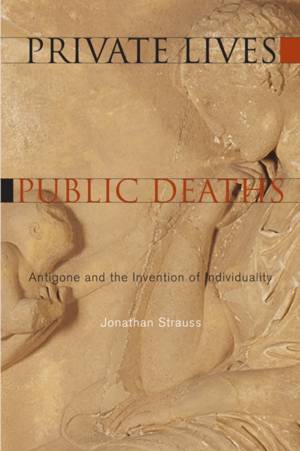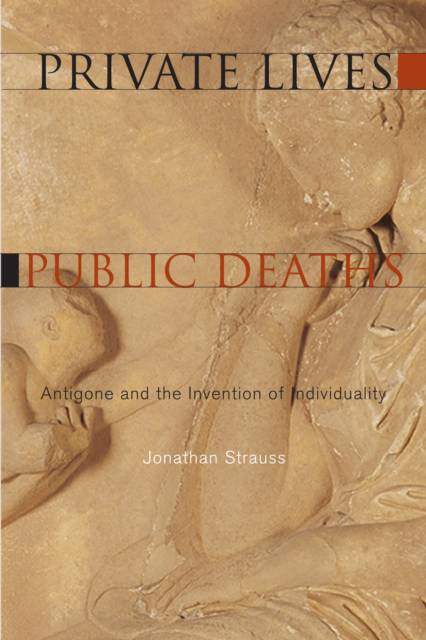
Je cadeautjes zeker op tijd in huis hebben voor de feestdagen? Kom langs in onze winkels en vind het perfecte geschenk!
- Afhalen na 1 uur in een winkel met voorraad
- Gratis thuislevering in België vanaf € 30
- Ruim aanbod met 7 miljoen producten
Je cadeautjes zeker op tijd in huis hebben voor de feestdagen? Kom langs in onze winkels en vind het perfecte geschenk!
- Afhalen na 1 uur in een winkel met voorraad
- Gratis thuislevering in België vanaf € 30
- Ruim aanbod met 7 miljoen producten
Zoeken
Private Lives, Public Deaths
Antigone and the Invention of Individuality
Jonathan Strauss
Hardcover | Engels
€ 153,45
+ 306 punten
Omschrijving
In Private Lives, Public Deaths, Jonathan Strauss shows how Sophocles' tragedy Antigone crystallized the political, intellectual, and aesthetic forces of an entire historical moment--fifth century Athens--into one idea: the value of a single living person. That idea existed, however, only as a powerful but unconscious desire. Drawing on classical studies, Hegel, and contemporary philosophical interpretations of this pivotal drama, Strauss argues that Antigone's tragedy, and perhaps all classical tragedy, represents a failure to satisfy this longing.
To the extent that the value of a living individual remains an open question, what Sophocles attempted to imagine still escapes our understanding. Antigone is, in this sense, a text not from the past but from our future.Specificaties
Betrokkenen
- Auteur(s):
- Uitgeverij:
Inhoud
- Aantal bladzijden:
- 232
- Taal:
- Engels
Eigenschappen
- Productcode (EAN):
- 9780823251322
- Verschijningsdatum:
- 1/08/2013
- Uitvoering:
- Hardcover
- Formaat:
- Ongenaaid / garenloos gebonden
- Afmetingen:
- 150 mm x 229 mm
- Gewicht:
- 453 g

Alleen bij Standaard Boekhandel
+ 306 punten op je klantenkaart van Standaard Boekhandel
Beoordelingen
We publiceren alleen reviews die voldoen aan de voorwaarden voor reviews. Bekijk onze voorwaarden voor reviews.









